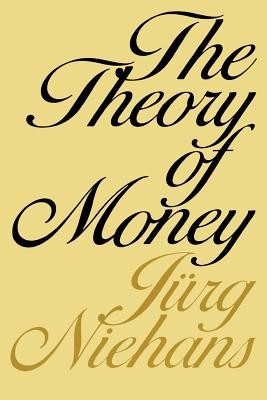
- We will send in 10–14 business days.
- Author: Jurg Niehans
- Publisher: Johns Hopkins University Press
- ISBN-10: 0801823722
- ISBN-13: 9780801823725
- Format: 15.3 x 22.9 x 2.3 cm, minkšti viršeliai
- Language: English
- SAVE -10% with code: EXTRA
Reviews
Description
Exploring the function of money as a medium of exchange and a store of value, this major work provides a comprehensive introduction to the pure theory of money and monetary policy.
Jurg Niehans considers his subject in both its microeconomic and macroeconomic aspects. The analysis thus extends from the individual demand for money to monetary policy and the art of central banking. Each chapter opens with a brief, nontechnical summary of its contents; expository material and up-to-date references to the literature are integrated in the discussion. While mathematics are used extensively, the required tools do not go beyond the elements of multivariate calculus and nonlinear programming, thus making the book appropriate as an introductory text for graduate and advanced undergraduate students in economics.
"The Theory of Money" makes an original, distinguished contribution to the literature. Not since Patinkin's 1956 work, "Money, Interest, and Prices", has there been such a systematic, comprehensive treatment of the principles of monetary theory.
Jurg Niehans, professor of political economy at The Johns Hopkins University from 1966 to 1977, currently is professor of economics at the University of Bern, Switzerland. His works have appeared in many distinguished European and American journals, including the "American Economic Review", the "Journal of Money, Credit, and Banking", the "Journal of International Economics", and the Journal of Political Economy".
EXTRA 10 % discount with code: EXTRA
The promotion ends in 22d.20:34:25
The discount code is valid when purchasing from 10 €. Discounts do not stack.
- Author: Jurg Niehans
- Publisher: Johns Hopkins University Press
- ISBN-10: 0801823722
- ISBN-13: 9780801823725
- Format: 15.3 x 22.9 x 2.3 cm, minkšti viršeliai
- Language: English English
Exploring the function of money as a medium of exchange and a store of value, this major work provides a comprehensive introduction to the pure theory of money and monetary policy.
Jurg Niehans considers his subject in both its microeconomic and macroeconomic aspects. The analysis thus extends from the individual demand for money to monetary policy and the art of central banking. Each chapter opens with a brief, nontechnical summary of its contents; expository material and up-to-date references to the literature are integrated in the discussion. While mathematics are used extensively, the required tools do not go beyond the elements of multivariate calculus and nonlinear programming, thus making the book appropriate as an introductory text for graduate and advanced undergraduate students in economics.
"The Theory of Money" makes an original, distinguished contribution to the literature. Not since Patinkin's 1956 work, "Money, Interest, and Prices", has there been such a systematic, comprehensive treatment of the principles of monetary theory.
Jurg Niehans, professor of political economy at The Johns Hopkins University from 1966 to 1977, currently is professor of economics at the University of Bern, Switzerland. His works have appeared in many distinguished European and American journals, including the "American Economic Review", the "Journal of Money, Credit, and Banking", the "Journal of International Economics", and the Journal of Political Economy".


Reviews